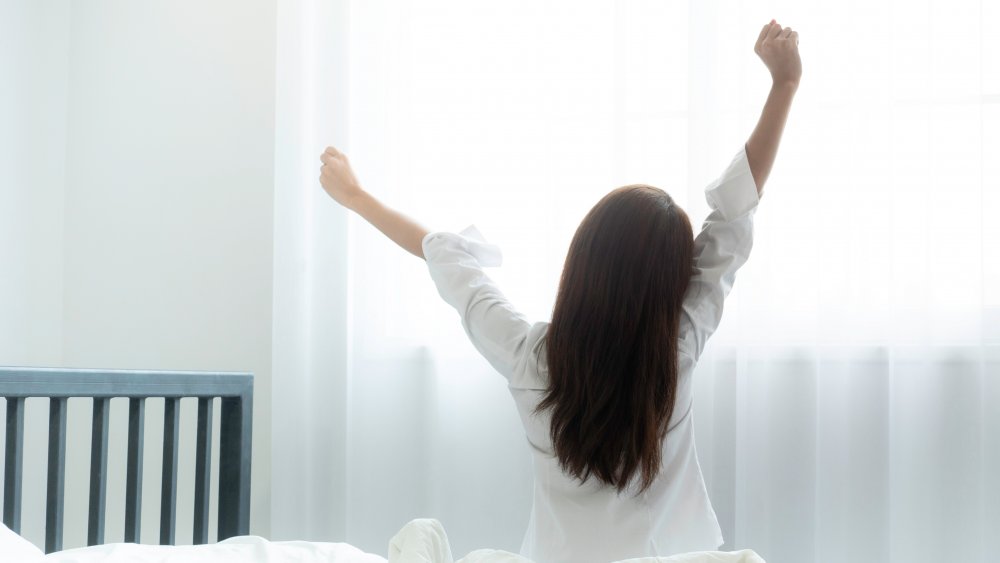The Real Reason Some People Need Less Sleep Than Others
The next time you try and get by on four hours of sleep, only to end up with a raging headache and the belief that the world is against you, you can blame your parents for that — and it's not because they mandated you clock up a minimum of eight hours of sleep throughout your childhood. Scientists Ying Hui Fu and Louis Ptáček say the ability to get by on as little as four hours of sleep (without the need for lengthy top-up naps throughout the day) is partly the result of a gene mutation, which allows those that have it to be awake up to 75 more hours a month than the rest of us if they feel like it (via Wired). And given that a day is 24 hours, that means three extra days a month to work, play, exercise, or binge-watch your favorite shows.
Fu and Ptáček discovered the genetic mutation in one family who had reached out to them. The father says he felt fully rested after just 5 1/2 hours, and his son clocks up 4 hours a night on the sleep-o-meter. Yet unlike the rest of us who attempt to spend the day with that amount of sleep, the men were able to go about their day happy, energetic, and healthy. In case you're wondering if your neighbor who keeps you awake at all hours has the gene, chances are he or she does not — because the mutation occurs in just one out of 4 million people.
The dangers of not sleeping enough
We are all aware of the dangers posed by lack of sleep simply because we've all been there, done that, and bought the t-shirt. Other than a general feeling of fatigue, forgetfulness, higher stress levels, and a need to lash out at just about anything, lack of restful sleep also causes a decrease in coordination and athletic performance. Start Sleeping also warns that lack of sleep can be a trigger for a host of illnesses ranging from obesity, high blood pressure and heart disease, certain types of cancers, and diabetes.
But people that need less sleep may not be exposed to these dangers because Fu suspects the mutation is one of several factors that lets them sleep more efficiently, "Natural short sleepers experience better sleep quality and sleep efficiency," Fu told National Institutes of Health. "By studying them, we hope to learn what makes for a good night's sleep, so that all of us can be better sleepers leading happier, healthier lives."

